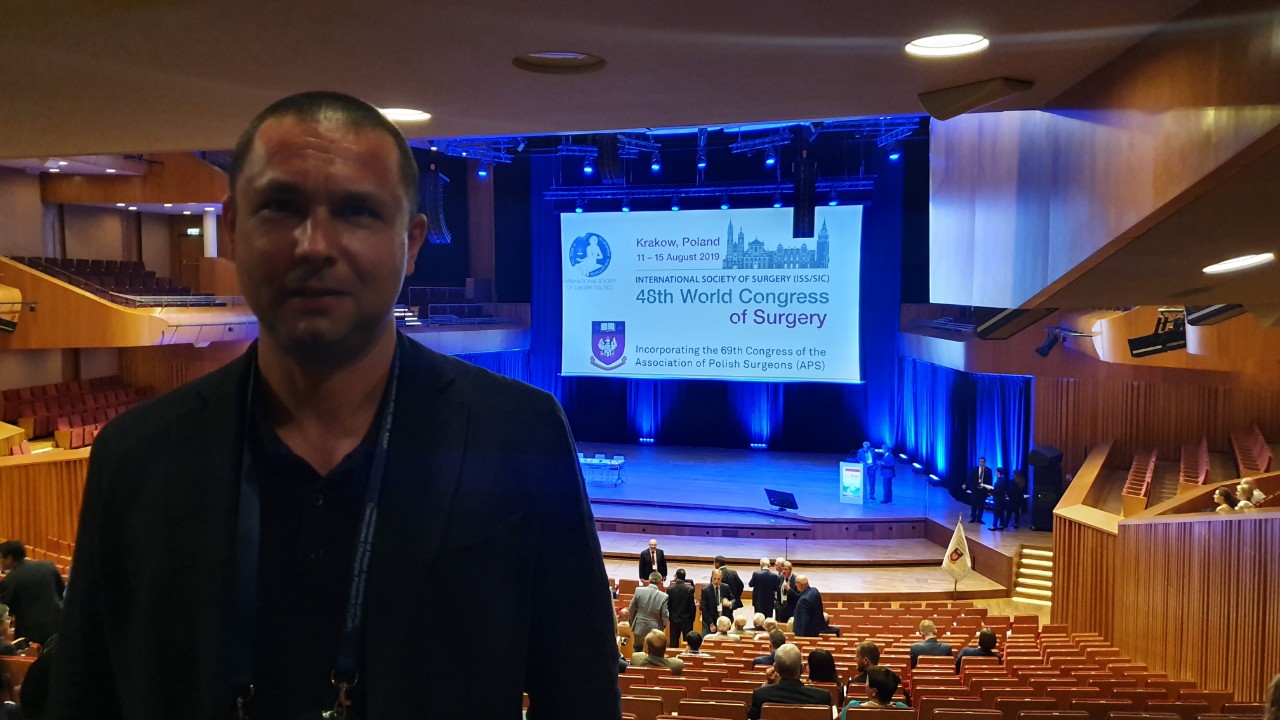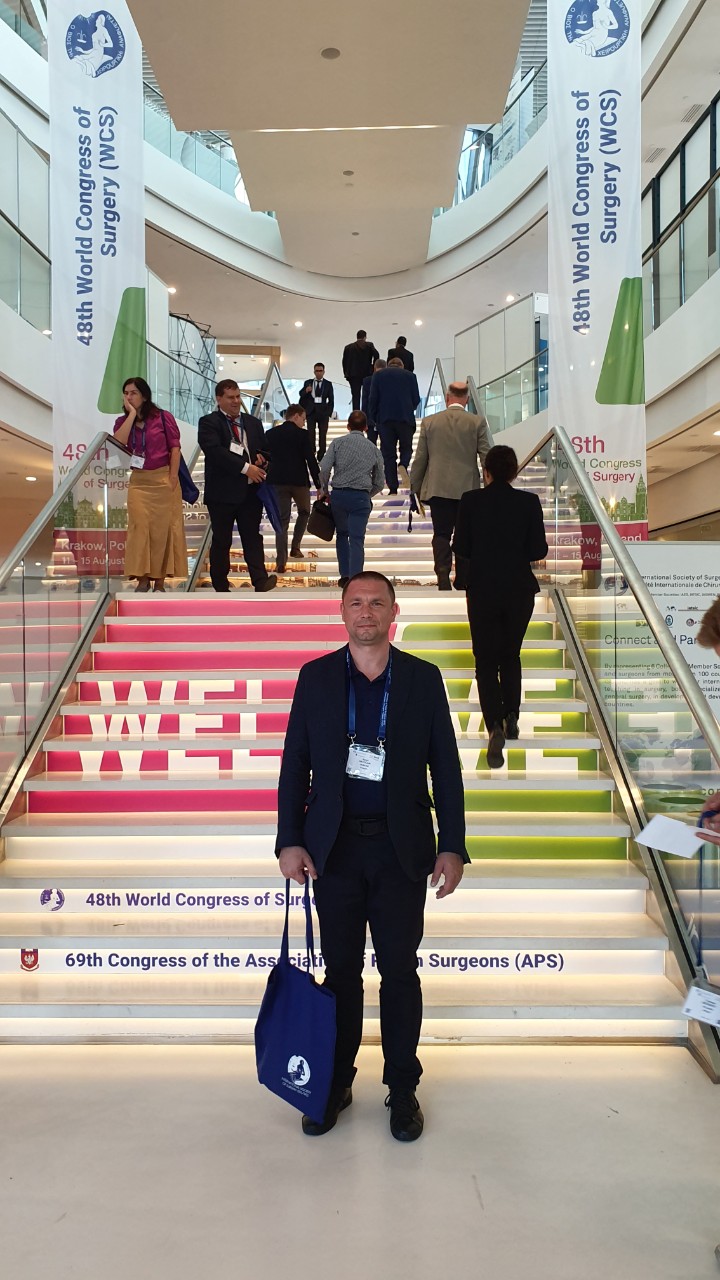On August 11-15, 2019 in Krakow (Poland) took place a landmark event for the entire surgical community - the 48th World Congress of Surgeons (WCS-2019), held by the International Association of Surgeons (ISS / SIC) in collaboration with the International Association of Endocrine Surgeons ( IAES), thoracic surgeons (BSI), abdominal surgeons (gastrointestinal tract) (ISDS), bariatric and metabolic surgeons (IASMEN), emergency surgeons, polytraumatologists and anesthesiologists and resuscitators (IATSIC, ASAP).

As part of this major event, was held the 69th National Congress of the Association of Polish Surgeons.
During the 5 day scientific program of the forum, delegates from 50 countries had the opportunity to participate in 64 sessions, 7 master-clasess and workshops, listen to 257 oral and video presentations, read 567 poster presentations, view a collection of materials with 1258 abstracts.
During the forum worked an exhibition of modern surgical equipment, tools and simulators, suture and alloplastic materials, laparoscopic and endoscopic devices.
Shupyk National Medical Academy of Postgraduate Education was represented at this scientific forum by the Chief of Department of Surgery and Vascular Surgery - S. Savoliuk (MD, Dr.Sc., Full Professor).
Considering the scientific priorities of the Department of Surgery and Vascular Surgery, S. Savoliuk took an active part in the sections of oncology (colorectal surgery, complicated tumors of the stomach and pancreas), bariatric and metabolic surgery (problems of surgery for obesity, metabolic syndrome and type 2 diabetes), abdominal laparoscopic surgery, laparoscopic surgery, diabetic foot syndrome and its complications, in the section of urgent abdominal surgery (treatment of acute pancreatitis and its complications, peritonitis, abdominal compartment syndrome).

Special mention should be made of the topic of the postgraduate education section in the preparation of surgical specialists, which raised the issues of analysis of the work of university clinics, training simulation centers, the need to combine laparoscopic surgery with traditional (open) surgery, especially in cases of conversions, the role of professors formation of young specialists, emphasis on evidence-based medicine, proper design of clinical trials and correct statistical processing of primary data sets, the features of interactive teaching methods and the possibilities of social media resources in the training of professionals.
The acquired knowledge will be useful for the Department of Surgery and Vascular Surgery in clinical work and for planning the work with interns and trainees of thematic improvement courses, while creating new training programs, courses and workshops.



